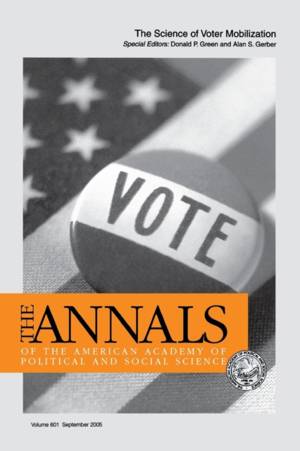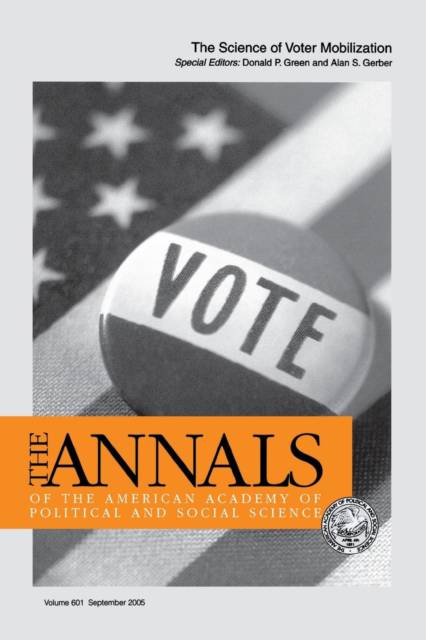
- Retrait gratuit dans votre magasin Club
- 7.000.000 titres dans notre catalogue
- Payer en toute sécurité
- Toujours un magasin près de chez vous
- Retrait gratuit dans votre magasin Club
- 7.000.0000 titres dans notre catalogue
- Payer en toute sécurité
- Toujours un magasin près de chez vous
Description
A powerful new research design in the field of voter mobilization has created a more comprehensive picture of the effectiveness of various get-out-the-vote campaign methods. With an increase in field experiments in the past few years, researchers, campaigns, and policymakers have gleaned important insights into voter participation.
Until recently, voting behavior was mainly studied through survey research. And while large national surveys have had a tremendous impact on scientific and policy debates, concerns about the accuracy of survey research remain. Surveys suffer from two major drawbacks. First is the possibility of misreporting by survey participants. Measuring voter turnout through survey research relies on respondents' disclosure of whether they voted or not, and some voters may feel embarrassed that they did not vote and provide false answers. Second, campaigns may focus their energies on likely voters. If so, surveys may show a correlation between voter turnout and voter mobilization activity even when voter mobilization campaigns are ineffective.
Aware of the limitations of survey research, political scientists have recently turned to field experimentation to gain a clearer picture of the causal implications of voter mobilization efforts on specific populations.
This issue of The ANNALS presents the results of several field experiments, which are at the forefront of research in this area. These field experiments draw important distinctions between different forms of mobilization activities and their effects on a variety of populations - studying personal versus impersonal mobilization efforts as well as partisan versus non-partisan efforts.
Challenging conventional wisdom and clarifying important methodological issues, this issue of The ANNALS provides a new approach to the study of voter mobilization. Taken together, these intriguing articles report advances in knowledge gained by field experiments and have the potential to reshape the past assumptions about campaign effectiveness and influence future strategies on mobilizing voters.
This issue will also serve as a springboard for new work in the field as political scientists grapple with filling in existing gaps - such as the effects of mass media - and move toward an even clearer theoretical understanding of the conditions under which interventions work.
Professionals, volunteers and anyone directly involved in voter mobilization will discover important findings in this collection of studies. And, because the research was conducted in the real world of campaigns and elections, the authors help answer the critical question of how to apply scholarly insights to voter outreach programs on a grand scale.
Spécifications
Parties prenantes
- Auteur(s) :
- Editeur:
Contenu
- Nombre de pages :
- 204
- Langue:
- Anglais
- Collection :
- Tome:
- n° 601
Caractéristiques
- EAN:
- 9781412927581
- Date de parution :
- 02-10-06
- Format:
- Livre broché
- Format numérique:
- Trade paperback (VS)
- Dimensions :
- 190 mm x 236 mm
- Poids :
- 308 g

Les avis
Nous publions uniquement les avis qui respectent les conditions requises. Consultez nos conditions pour les avis.






